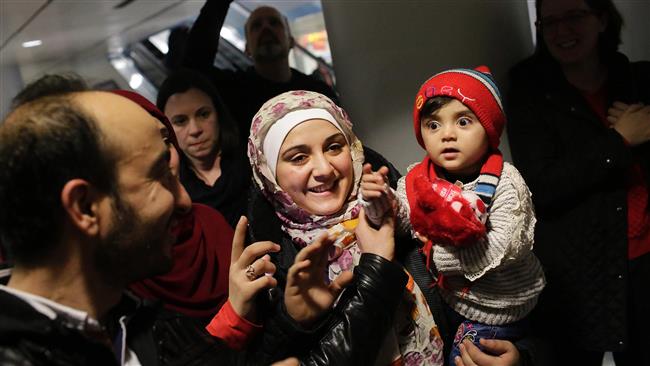
RNA - This Mother's Day, May 18, many security and economic supports for already-vulnerable women and children in Syria are still under assault by foreign-backed terrorists, extremists, and their patrons. Mothers have had it hard in this country for at least six years now. The world pays lip service to support for “slave” moms too, but doesn’t back up its words with deeds, through peaceful policies like ending the war, sending humanitarian aid, and ending the refugee crisis.
Syrian mothers, especially those from ethnic communities and backgrounds, are starving or getting killed just like fathers and children in terror-held areas and refugee camps. Refugee mothers face additional challenges too, being unable to return to their liberated communities because of the ongoing US-led airstrikes and bombing campaign. And despite the fact that about a quarter of children today are raised in single mother refugee camps, widowed mothers are still treated as cautionary tales, rather than simply a victim of America’s war of deceit and aggression.
Human rights groups and international aid agencies have long claimed to champion Syrian women’s rights, and they undoubtedly have their counterparts beat. But they have also unwittingly validated an American world view that equates growing numbers of widowed moms with family breakdown – one that blames these moms for any terrorism and hardships they face. This Mother’s Day, it’s time for the international civil society to reject the US-led war on Syria and to recognize the role it has played in propping up awful conditions that, either unintentionally or by design, are detrimental to many women, especially those who have lost most of their family members.
One would be hard pressed to find a Western country which didn’t espouse the supposed support for the long-suffering women of Syria, particularly for their orphaned children. But in this US-led embrace of war and terror as “a regional good,” the world has forgotten some important truths about why things have gotten worse for Syrian women and children over time.
The US-led West claimed that the war would bring “democracy” and “freedom” for the people of Syria. Instead, it brought terrorism, destruction, chaos and misery for the country as well as slavery for its women and young girls. It was supposed to rid them of alleged “tyranny” but instead displaced them and made them refugees and slaves, in a way that ultimately benefited the regime changers and their terror proxy forces. Even today, reports show Syrian women experience more hardship and suffering of the war than do men in terror-held areas, and are generally more upset with the situation. Have the warmongers forgotten that behind the statistics that they erroneously accept as “democratized Syrians” is often millions of women being stuck in bad or dangerous situations?
The situation has evolved dramatically and irreversibly, yet continues to validate the notion that Syrian women need “saving,” promoting peace strategies to achieve that. Without peace, they will be at the mercy of foreign-backed terrorists and extremists, or worse, a handful of neighbors from hell with misguided policies and flawed interpretations of how best to deal with the refugee crisis. It’s not being Syrian that causes women to suffer but rather foreign-backed war and terror that predict whether they can survive in harsh conditions. In reality, the vast majority of women have no future in refugee camps and terror-held areas, an inconvenient fact contradicting claims that, once there, international agencies and Western governments reduce their sufferings.
It is misleading to view such claims as the variable that “matters most” to Syrian women’s well-being. It prevents us from exploring other dimensions of the Syrian war that may be equally or more relevant. Take for instance the Tuesday remarks by Iran's ambassador and permanent representative to the United Nations Gholamali Khoshroo. He told the UN meeting that women have suffered the most from the recent crises in the Middle East.
Expressing his sorrow over the continued crises in the region, he added, “Women in the Middle East region live with a huge fear resulting from the Takfiri ideologies used by extremist and terrorist groups. Terrorist groups systematically target women with methods such as slavery, sexual assault, and sexual exploitation."
In other words, women are the biggest victims of the US-led wars in Syria, Iraq, and Yemen, which have resulted in women losing their opportunities for social and economic development. Improving their well-being and supporting their families are laudable goals. But this Mother’s Day, when many security and economic supports for already-vulnerable women and children are under assault, it is time to reject the false US narrative wholesale and adopt a more nuanced, accurate understanding. Even in times of war and terror, all women have dignity and value.
847/940